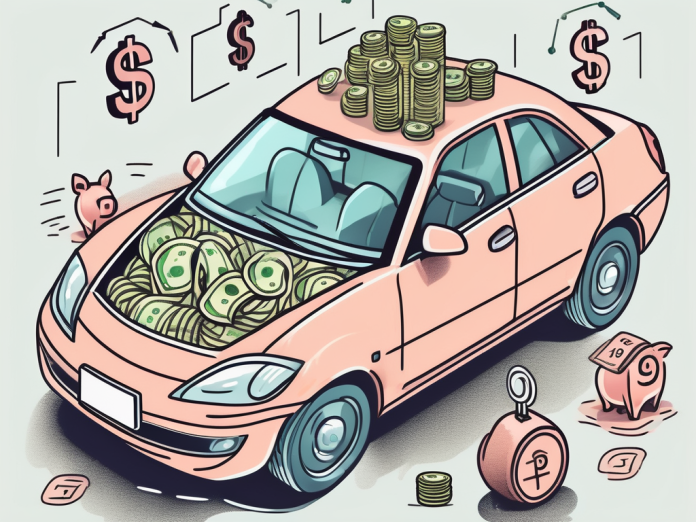If you’re in the market for a new car, you’ll likely need a car financing plan to make your dream vehicle a reality. However, securing the best deal on car financing requires some strategic thinking. In this article, we’ll explore smart strategies to help you finance your next car while getting the most for your money. Let’s get started!
Understanding the Basics of Car Financing
Before diving into the world of car financing, it’s important to have a solid understanding of the basics. First and foremost, your credit score plays a crucial role in determining your eligibility for financing and the interest rate you’ll receive. The higher your credit score, the better your chances of securing favorable terms.
It’s worth noting that lenders may also consider other factors such as your income, employment history, and existing debts when evaluating your loan application. Having a stable job and a steady income can work in your favor, demonstrating to lenders that you have the financial capacity to repay the loan.
Another key decision you’ll need to make is whether to lease or buy your car. Leasing allows you to drive a new vehicle for a set period of time, typically three to five years. This option often comes with lower monthly payments and the opportunity to drive a new car more frequently. However, there are mileage restrictions and potential fees for excessive wear and tear.
On the other hand, purchasing a car gives you ownership and the freedom to customize it to your liking. While monthly payments for buying a car may be higher than leasing, you have the advantage of building equity in the vehicle. Additionally, there are no mileage restrictions, giving you the flexibility to drive as much as you want without incurring extra charges.
Evaluating Your Financing Options
Once you’ve gained a solid understanding of the basics, it’s time to explore your financing options. One option is to secure a bank loan. Banks often offer competitive interest rates and flexible repayment terms.
When considering a bank loan, it’s important to note that different banks may have varying requirements and approval processes. Some banks may offer special financing programs for first-time car buyers or individuals with excellent credit scores. It’s advisable to shop around and compare offers from multiple banks to find the best loan terms that suit your financial situation.
Alternatively, you can explore dealership financing. This option allows you to finance your car directly through the dealership. While convenient, it’s important to carefully scrutinize the terms and interest rates to ensure you’re getting the best deal possible.
Dealership financing often comes with the advantage of special promotions or incentives, such as 0% APR financing for a limited period or cashback offers. However, it’s crucial to read the fine print and understand any additional fees or charges that may be included in the financing agreement.
If you prefer the convenience of online shopping, online lenders may be a viable option. These lenders often offer competitive rates and fast approval processes. However, it’s essential to do your research and ensure that the lender is reputable and trustworthy.
Before applying for an online loan, take the time to read customer reviews and check the lender’s credentials. Look for transparency in their terms and conditions, as well as clear information on interest rates, fees, and repayment options. Additionally, consider reaching out to the lender directly to address any questions or concerns you may have about the loan process.
Tips for Negotiating the Best Deal
When it comes to negotiating the best car financing deal, preparation is key. Start by getting pre-approved for a loan before setting foot in a dealership. This allows you to know your budget and gives you more bargaining power.
Once you’re at the negotiating table, be sure to carefully read and understand the terms of your loan. Pay attention to the interest rate, loan duration, and any potential fees. If something seems unclear or unfair, don’t be afraid to ask questions and negotiate for better terms.
Lowering your interest rate can also save you a significant amount of money over time. One strategy to achieve this is by making a larger down payment, which reduces the principal amount financed. Additionally, maintaining a good credit score and shopping around for the best rates can also help drive down your interest rate.
Another important aspect to consider when negotiating a car financing deal is the trade-in value of your current vehicle. Before heading to the dealership, research the market value of your car to have a better understanding of what it’s worth. This knowledge can give you leverage during negotiations and potentially increase the overall value of your deal.
Furthermore, don’t forget to inquire about any available incentives or promotions that the dealership may offer. These could include rebates, special financing rates, or discounts for specific groups of customers. Taking advantage of these incentives can further enhance the deal you negotiate and potentially save you even more money in the long run.
Protecting Your Investment
Buying a car is a significant financial investment, and it’s important to protect your purchase. One aspect of protecting your investment is obtaining the right insurance coverage for your vehicle. Comprehensive and collision coverage can provide financial protection in the event of an accident or theft.
Additionally, understanding warranties and service contracts can help you avoid unexpected repair costs down the road. Warranties typically cover specific parts and repairs for a certain period of time, while service contracts offer extended coverage beyond the manufacturer’s warranty.
Avoiding Common Car Financing Mistakes
As you navigate the car financing process, it’s important to be aware of common mistakes that can cost you money. One of the pitfalls to avoid is accepting the first financing offer you receive without shopping around.
Another common mistake is handling negative equity in a car loan. Negative equity occurs when you owe more on your car loan than the vehicle is worth. It’s crucial to carefully review the terms of your loan and consider making extra payments to reduce your outstanding balance.
Financing your next car doesn’t have to be an overwhelming ordeal. By understanding the basics, exploring your options, negotiating the best deal, protecting your investment, and avoiding common mistakes, you can secure the best financing terms for your new vehicle. Happy car shopping!




























